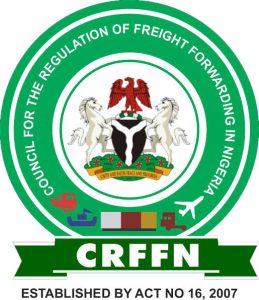Chinese Navy in Gulf of Guinea: What does it Portend for Nigeria?

By DAPO OLAWUNI
The Chinese Navy Escort Task Group 162, comprising MSL Destroyer NANNING, MSL Frigate SANYA, and Supply Ship WEISHANHU, on Sunday, visited Nigeria, during a rare visit to the Gulf of Guinea, a development which Nigerian and Chinese authorities described as bilateral relationship to strengthen security in Gulf of Guinea.
Foreign naval ships, including Danish, Spanish frigates are already in the Gulf of Guinea, this was highly responsible for the drop in piracy cases in the region since 2021.
Findings have however revealed that the Chinese visit was a deliberate effort to grow China’s Military influence in Nigeria and African coast.
West Africa is part of the Gulf of Guinea and it is an important global exporter of crude. According to the International Maritime Bureau (IMB) as one of the world’s most dangerous and important shipping routes, covering 11,000sq km (4,247sq miles) and stretches from Angola to Senegal.
Two of those countries, Angola and Nigeria, are among China’s top oil suppliers. Major Chinese oil explorer CNOOC Ltd also engages in deep-sea production off the coast of Nigeria.
In January, Nigeria opened a billion-dollar Chinese-built Lekki deep seaport in Lagos. Chinese State-owned China Harbour Engineering Co and the Singapore-based Tolaram group have a joint 75 percent stake in the new Lekki deep sea port, one of the region’s biggest.
There has also been speculation the Gulf of Guinea could offer a base for China’s military. Last year, American defence officials expressed concern that such a base, possibly in Equatorial Guinea, could threaten US national security.
In 2017, China opened its first overseas naval base in Djibouti, one of the world’s most important choke points for maritime trade, fanning concern that Beijing might set up more regional “logistics facilities” as its military develops the capacity to operate thousands of kilometres from home.
Over the last three decades, China has widened its influence in almost every African nation through investment, trade and loans.
Apart from these, for several years now, Chinese fishing trawlers have plundered Nigerian and Ghanian waters through illegal, unreported and unregulated (IUU) fishing.
In year 2020, a report conducted by Modern Ghana with support from the Money Trail Project, a Eurasian and African grant fund, uncovered how political inaction, corruption, and Chinese impunity threaten fish populations in the West Africa region.
Foreign-owned vessels, the report notes, in connivance with some local fishermen and security officials engage in transhipment activities despite prohibition by Nigeria’s Sea Fisheries Act.
The Flag Officer Commanding Western Naval Command, Rear Admiral Joseph Akpan, on Sunday explained that the visitation of the Chinese naval ships signalled a collaboration between the Nigerian and Chinese navies, particularly to curb insecurity in the Gulf of Guinea.
The MSL Destroyer NANNING made its port call at the Nigerian Ports Authority Berth 21, while the other two ships remained at anchorage.
The Chinese Ambassador to Nigeria, Mr Chi Chun, said the delegation from China was big with more than 700 people and three ships to Nigeria.
“The visit is to deepen the relationship between the two countries and also seek improved cooperation with each other.
“This visit demonstrates the harmony and symphony between Nigeria and China,” he said.
The envoy said China and Nigeria would continue to work together and promote peace and harmony.
“I believe that this visit will deepen the cooperation between both countries military sector so that we can work together to overcome obstacles.
“We will continue to do more things to facilitate and promote the relationship between the two countries,” Chun said.
In his own remarks, Akpan said, “This is an alliance between the Nigerian Navy and the Chinese Navy as well as the military. This will help us fight crimes, especially in the Gulf of Guinea.
“During their period of stay, our men will be interacting, we will be having some sporting activities, exchange of mementos and gifts.
“We will also discuss the future of both navies, especially on how we can benefit from each other.”
The FOC added that the term called ‘sea riders’ enabled some of the Nigerian Navy personnel onboard the Chinese ship and they could also have some of their own men onboard Nigerian ships.
“This helps to foster friendship across the horizon,” Akpan added.







